At What Point Is It Time To Reassess Phil Spencer's Tenure?
By ZombiePie 27 Comments
Preamble
It's now been 10 years since the announcement of the Xbox One all-in-one entertainment system https://t.co/WWnNcTfHNj pic.twitter.com/afr1QSu65f
— Wario64 (@Wario64) May 21, 2023
My, how time flies. As Wario64's Tweet reminds us, it's been over ten years since Don Mattrick took the stage and presented the Xbox One, an all-encompassing multimedia-minded console priced at $499.99/£429.99. The platform proved to be a significant turning point for the company's console manufacturing fortunes after doing more than admirable work with the Xbox 360, hardware issues and all. Mattrick left Microsoft on July 1, 2013, and his position remained vacant until Phil Spencer officially became Head of Xbox in 2014. It's wild to think, but Mattrick announced the Xbox One, and when things went south, he only stayed around for less than a year before hitching his reputation and future on Zynga. So, while many gamers, especially those invested in the Xbox ecosystem, look at the anniversary of the Xbox One as a significant page in the "What Could Have Been" tome of video game history, most seem to have forgotten that we are also nearing the tenth anniversary of Phil Spencer's tenure as the head of the Xbox brand.
Phil Spencer is one of the more interesting figures in the video game landscape. The man first joined Microsoft in 1988 as an intern, with one of the highlights of his internship involving him becoming the development lead for Microsoft Encarta. He was twenty-five years old when he led that project. He was eventually attached to Microsoft's Xbox division almost immediately upon its launch. He made the rounds in Lionhead Studios and Rare until he became the general manager and studio vice president of Microsoft Studios, now known as Xbox Game Studios. When Microsoft CEO Satya Nadella promoted Spencer to the company's Senior Leadership Team, which means he now only reports to Nadella, few opposed the move. The Xbox brand was still on shakey grounds, but Spencer had done a decent enough job of righting the ship in a limited amount of time. Now with Nadella being reported as signing blank checks to fund the defense team responsible for protecting its proposed buyout of Activision-Blizzard, it doesn't seem like Microsoft has any plans of giving up on video games, though its vision of what it will contribute to the industry and what shapes its consoles will take remains undecided.
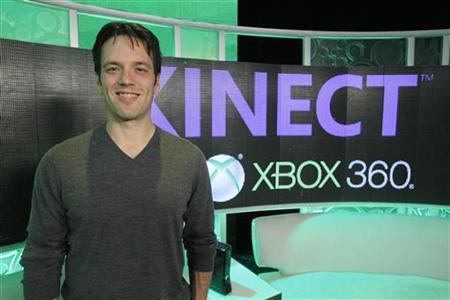
And yet, how much progress have we seen the Xbox division make since Spencer took the reins? Most estimates say the PS5 continues to outsell the Xbox Series S/X two-to-one, and the Switch continues to inhabit its own arena where it is on track to become the second best-selling game console/device of all time. The highly problematic launch of Redfall resulted in Spencer making the rounds in various media circles, wherein he publicly apologized for the game's state and took some responsibility. The reports of management dysfunction in Microsoft's internal studios, especially those they bought during Spencer's tenure, continue to grow. This year, the company has a lot riding on Starfield, and if the game's technical issues exceed what many of us would judge as the normal jank associated with Bethesda's style of open-world game design, that would be another black mark on his record. Game Pass remains his most significant achievement, even if it has done little to motivate people to join the Xbox ecosystem. So, does Spencer have enough to show for his nigh ten-year reign, and if not, at what point do you start judging his management and amiable direction differently? Before we get into that, I want to clarify that I am not advocating for the firing or removal of Spencer and his associates. Nor do I think Spencer is a friend, consumer advocate, or someone to defend like he's the second coming of Christ. He's a multi-million dollar earning corporate manager who will likely make more than I will ever make in my lifetime in one month.
The History Of Broken Promises
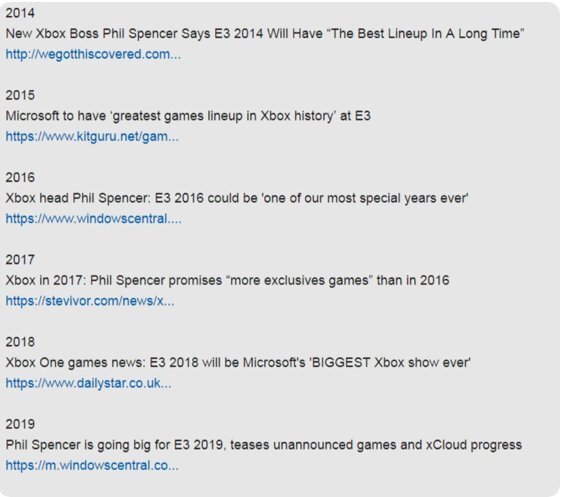
Let's start with an effortless statement: Phil Spencer legitimately loves this industry. He loves it so much that he has attended every one of Microsoft's E3 press conferences and has been on the brand's public stage in some capacity since 2010. The issue with Spencer's enthusiasm is that he has the "Peter Molyneux Syndrome." He overpromises on the company's portfolio of projects and habitually underdelivers. Likewise, his love for big stages and fancy press conferences has the habit of forcing some studios to slap together teaser trailers and game announcements far earlier than they should. Redfall is a recent example, and Jason Schreier's profile on the game confirms this in brutal detail, wherein Arkane developers knew the game was in a problematic and buggy state but were forced to demo it at press events, which seems downright cruel. Additionally, let's remember that 343 did a massive rework to Halo Infinite after a universally negative response to a press conference trailer. Likewise, when was the last time we heard anything about The Initiative's Perfect Dark reboot game or Playground Games' Fable title after both were tapped to be "World Premier" teaser trailers Spencer giddily announced on a public stage? Spencer and Microsoft are far from the only guilty culprits of this practice. Still, he sometimes exhibits an element of "announcement envy" when he tries to out-compete Sony and Nintendo on big stages, and it's had some embarrassing results.
Now, what are Spencer's responsibilities in this matter? At the most basic level, he reviews items before they get on the final draft of his conferences, and there's a high likelihood he puts out company-wide memos asking for interested parties. Again, I'm not an expert on the corporate structure at Microsoft, but there are two points worth echoing on this matter. First, Spencer's experience working in software, which dates back to 1988, should mean he has a good compass on software titles being in a good or bad state. Unlike other console gaming head honchos, Spencer knows how the sausage is made. Second, how many years in a row can you look directly at the camera, promise people this will be the best year for your console yet, see things not pan out, and still not realize you need to be more careful about your language and messaging? People might like Spencer's more amiable personality, but who trusts him when he excitedly says he has a game announcement that will catch your attention?
Most Agree Spencer's Statements About Big Games Not Moving The Needle Is Wrong
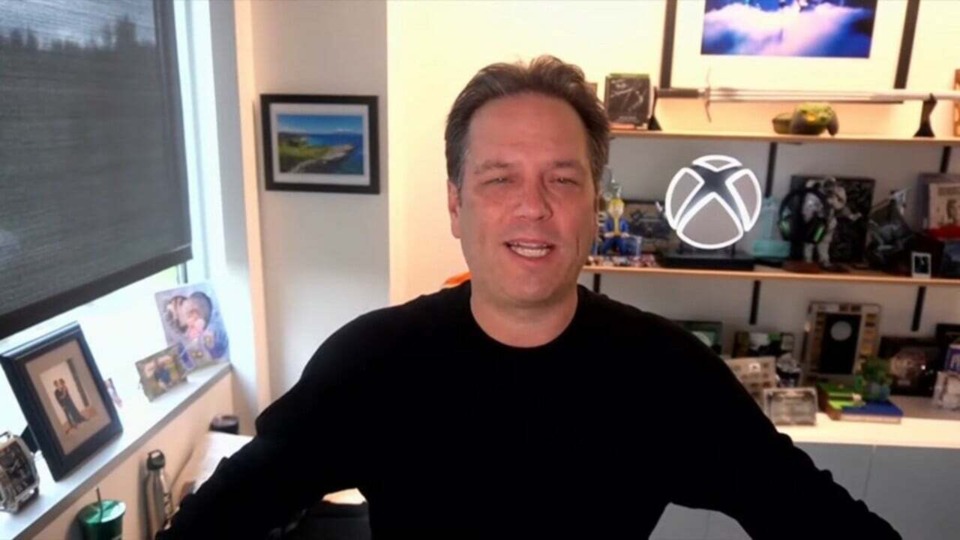
We now transition into the most divisive part of Spencer's Kinda Funny interview. At one point, he outright states that Microsoft likely will not be able to catch up to Sony or Nintendo this generation or possibly ever in terms of hardware sales, and also that even if the Xbox had a bevy of big, eye-catching titles or exclusives, people are unlikely to leave the current Sony and Nintendo console ecosystems in favor of Xbox's. There is some truth to what Spencer is saying, and I agree that the Mattrick era lost one of the worst possible generations one could lose in this industry. However, I don't entirely buy Spencer's argument that losing the Xbox One generation is the primary reason Xbox still needs to play "catch up." People forget that the PS3 eventually caught up to and exceeded the 360 thanks to Microsoft's complete and utter complacency after they caught Sony in its weakest state. After approaching an entire generation with a sense of pompous elitism, Sony engaged in a level of good faith building Spencer's management has repeatedly been gun-shy about in favor of continually attempting to shift their narrative to pretend like the Xbox One never happened. I honestly think if Spencer and others stopped saying some permutation of how the Series S/X was a "new era of Xbox" and instead publicly reflected on why consumers and developers turned on the Xbox One, it would result in some buy-in from significant stakeholders.
Furthermore, Nintendo had an even worse time with the WiiU. While Nintendo has almost 40+ years of video game IPs at their disposal, a fact I do not want to downplay, the core argument that big and exciting exclusive titles will not change your fortunes doesn't hold up in my mind. While Spencer's Kinda Funny interview was admirably frank, it critically oversimplified most video game consumers. Most people with disposable income and in the games hobby are open to owning more than one console. The messaging shouldn't be about "switching" people that own a Switch or PS5 to replace what they already own, but instead to motivate and communicate why owning an Xbox console alongside the ones they already own is a worthwhile investment. And yet, continually, Microsoft has failed to do that. Part of it stems from Microsoft releasing almost everything that launches on the Xbox on PC. Whether that is a good business decision is beside the point that people who do not already own an Xbox Series S or X don't feel like there is a reason to own one, and the brand isn't exactly saying why one should change that mindset.
The Reports Of Management Dysfunction In Their Purchased Studios Grows
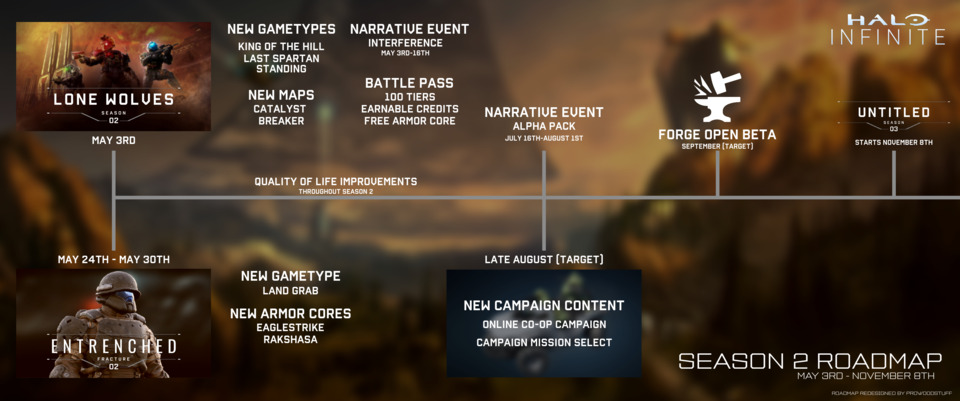
This next point is not exactly a shocker to anyone casually following recent video game news. Still, Redfall is far from the only evidence of Microsoft showing clear signs of not knowing what it wants from the many internal studios it paid millions of dollars to own. Microsoft first announced the Perfect Dark reboot in 2020. After prolonged radio silence, Microsoft only recently revealed that they needed to reboot the endeavor, and many of the figures billed as spearheading the project had left. And speaking of Xbox struggling to communicate the state of its tentpole titles in its portfolio, it's WILD that we will likely get to the fifth anniversary of Gears 5 with no semblance of an idea of what is going on with Gears 6 or what Microsoft has done with The Coalition after Rod Fergusson left to work on Diablo IV. It's also not like Microsoft denies its struggles managing in-house studios. In a documentary titled Power On: The Story of Xbox, Spencer admitted that his and his predecessor's handling of Lionhead Studios was "a mistake" and how forcing them to make a Kinect title, everyone knew would never make its money back, was a terrible decision. Spencer also admits that he knew Fable Legends was not a good fit for the studio but didn't do anything to encourage the studio to pivot into something that better fit their strengths and instead let everyone involved wallow until the plug was finally pulled.
For an example of how the Spencer era has not been a universally smooth transition, look no further than the ebbs and flows of 343 Industries. It is essential to note that it's impossible to criticize any studio or console manufacturer with staff turnover unless you have evidence of gross or criminal negligence or abuse. There are even cases of Microsoft presiding over graceful torch-passing moments in its outfits, like when Shinji Mikami announced he was bowing out of Tango Studios after HiFi Rush. Likewise, The Coalition deserves much credit for using Gears 5 as a slight course correction of the series. Nonetheless, the struggles of 343 might stand as one of the most prominent black marks on Spencer's tenure as an actual manager of a brand. 343's near-constant soft-rebooting of the narrative they are trying to tell in each game is a sign there's an evident lack of direction that otherwise did exist during the Bungie era of Halo games. Infinite's inability to deliver on a regular schedule of updates and features that were once assumptions in the past, without any clear replacements or alternatives, further suggests 343 is either rudderless or in dire need of a director that can act as a point man willing to follow an open five-year plan. And the announcement the studio would be heavily affected by layoffs and was in the process of restructuring does not paint a pretty picture that Spencer or his staff know what to do with the post-Bungie Halo IP, even though they have had almost ten years to figure things out. Has the FPS genre passed Halo by? Possibly, but you can't look at 343's inability to deliver on split-screen co-op in Infinite or promised season pass features as anything other than a studio in crisis!
He Sure Likes To Put All Of His Eggs In One Basket
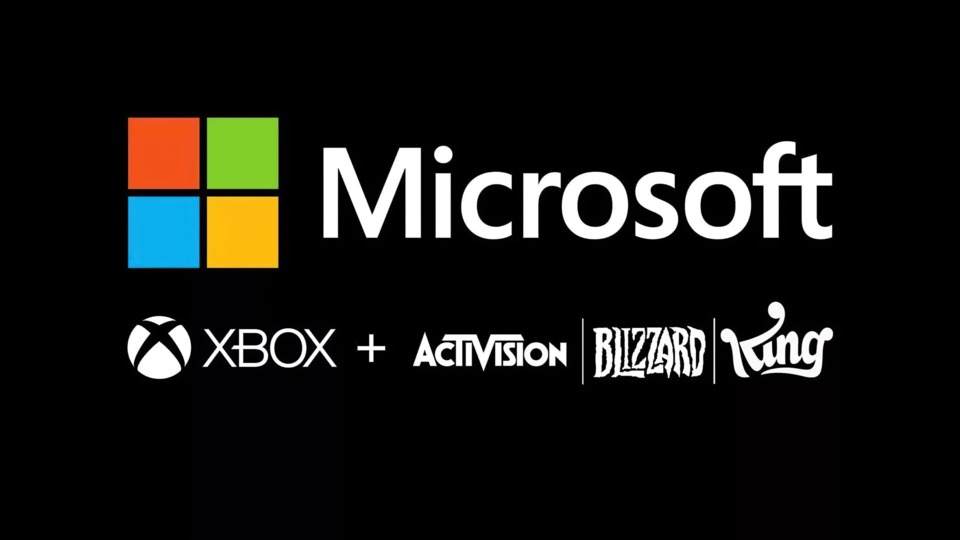
I hinted earlier that the Activision-Blizzard purchase would not be a focal point of this write-up. Nonetheless, there's no denying that we need to talk about it. To put a slightly positive spin on this topic, it is worth noting that the enormous blank check Satya Nadella gave Spencer to purchase the studios he did on top of Activision-Blizzard came after Spencer had to virtually argue in favor of Microsoft not selling the Xbox division to another company or spinning it off entirely. His directive of going "all-in" on gaming hasn't been without a handful of successes and, as we will eventually talk about with Game Pass, does deserve massive credit for changing how we consume video games in the first place. More fundamentally, if Spencer's personal goal was to keep the Xbox dream "alive" and within the walls of Microsoft, there's no denying he accomplished that. Nonetheless, they sure have a lot riding on their Activision purchase. Microsoft has the reputation of thinking it can purchase its way to market-share parity, and there's no denying you get that sense with Spencer's reign.
It also does not help that much of Spencer's current drive to move units and bring people into the Xbox ecosystem relies on people viewing Game Pass as "enough" to sell them on new console hardware or encourage them to use the Xbox or Game Pass PC apps. Speaking of which, how is it in the year of our Lord, 2023, that Microsoft's communication about the differences between Game Pass on Xbox and Game Pass on PC STILL is utter dogshit? I'm not even talking about the performance issues with the Xbox App on PC or Game Pass on PC; I want a list of the games that exist on one or the other and the ability to sort them. This quibble is one example of how Microsoft needs to be more thoughtful about educating general audiences about Game Pass, which is all the more difficult when you have two different permutations of that service. And on top of that, what the fuck is the point of the Xbox app on Windows? I'm sick and tired of needing to put it to sleep whenever Windows updates and turns it back on, and it sucks up my processing power, OR it hits me over the head with ads for games I'd much rather buy on Steam, Epic, or GOG.
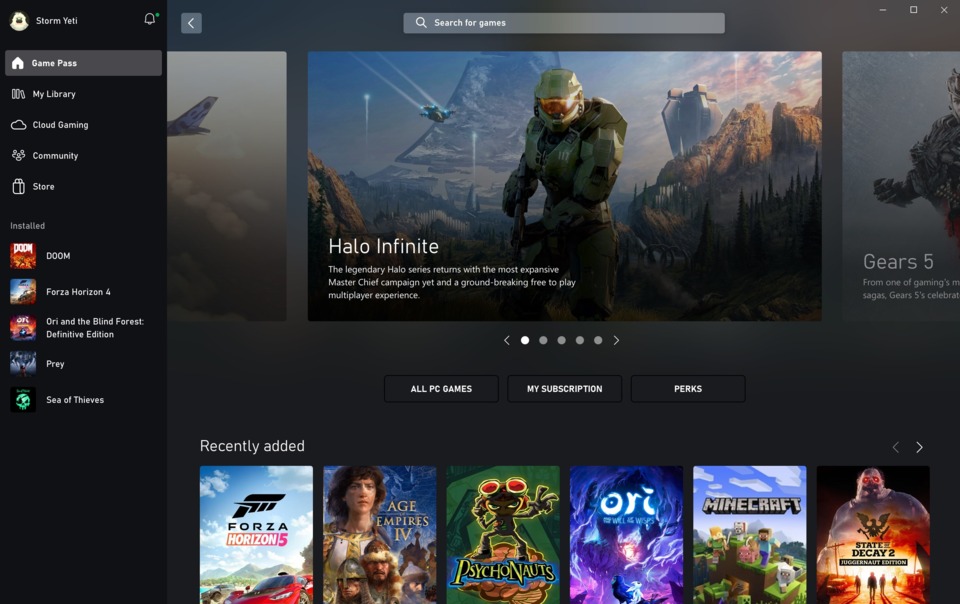
The other dangerous line of thinking that Spencer is occasionally guilty of is viewing one game or project as being "enough" to salvage or justify problematic development cycles. The worst thing that could happen this year is if Starfield comes out and it has considerably more "Bethesda jank" than we have ever experienced in their previous titles. Open-world games are complex endeavors; there's no denying that. Nonetheless, a lot is riding on Starfield this year to show the power of the Xbox's architecture and that the Microsoft acquisition of Bethesda and ZeniMax Media was mutually beneficial. If the game comes out and it's noticeably better or has a smoother launch than what we have seen in previous Bethesda titles, they can, at least, claim they are learning from their failures. Still, another problematic outcome that could arise after Starfield's release is one I'm apprehensive about but assured will happen. I think there's a genuine risk that Starfield makes a ton of money, and Microsoft slaps water on their face and says, "Whelp! We are out of the growing phase! Nothing to see here! Business as usual!" Redfall is one of many examples that Microsoft needs to have a cause célèbre moment wherein they reflect on why their attempts to create the in-depth AAA internal game titles that Sony and Nintendo have has been messy at times and which of their policies or personnel continue to lead to these dusty development cycles.
To Spencer's Defense, He Inherited A Disaster
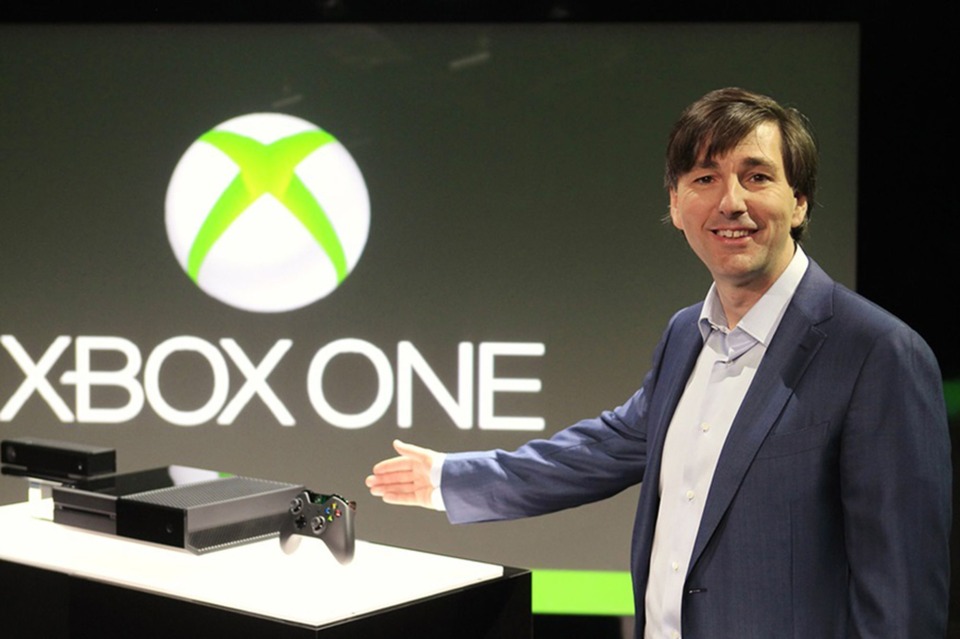
Let's now transition to why we should still view Spencer's tenure as a net positive rather than a net negative. The biggest one is a reason I have already hinted at earlier. The fact remains that the launch of the Xbox One was an unmitigated tire fire. While the console was not a complete commercial failure and even had pockets of success worldwide, Spencer inherited a public relations disaster. The end of the Don Mattrick era burned large swaths of the goodwill people had from the 360 and pissed away decades of progress Microsoft made with developers to treat their consoles as being on par with Sony and Nintendo. The last ten years have made some, but not complete, progress in rectifying the deficit Mattrick wracked up in the failed plan to make the Xbox One an all-encompassing multimedia device. Are there examples of developers like Square-Enix that prove some do not view the Series S/X as worth their time or that Microsoft still does not present them with a deal worth taking? Sure, but considering that the alternative was Nadella pulling the plug, Spencer preserving much-needed competition in the industry remains a massive accomplishment. And, yes, a single mind or person rarely spearheads business decisions. Spencer has a team of industry professionals that work with him. Regardless, part of his agenda of keeping the brand alive has also involved him and his team developing a path or direction we don't see from Nintendo or Sony. There's no denying that games are coming out that take advantage of Game Pass and would likely not exist on consoles if it did not exist.
Spencer's work to better align the Xbox division with Satya Nadella's mandate of moving from Microsft's software-based portfolio with services and cloud databases was no small task. Yet, he managed that reasonably well, and this has been to the benefit of consumers like you and me. It's wild to think, but Microsoft has the most consumer-friendly backward compatibility program AND maintains legacy software leaps and bounds better than its competitors. As an exercise, think of any game you bought digitally on XBLA during the heyday of the 360. Unless it is a movie tie-in or a licensed property, it's likely still available to purchase, thanks to Spencer and his team publicly advocating for these storefronts to stay up and available. The last time Microsoft sunset any services on Xbox was when they terminated Xbox Live support for the original Xbox to allow people to have more extensive friend lists and adopt a wider breadth of newer Wi-Fi generations. Yes, Games for Windows Live is another black mark on the company's record, but that wasn't Spencer's call, and it still ranks below Nintendo making whole generations of consoles virtually unusable like what they recently did with the Wii U or Sony revoking your ability to buy exclusive titles on the PS Vita.
Microsoft Has Been In The Industry For Far Less Time Than Its Competition
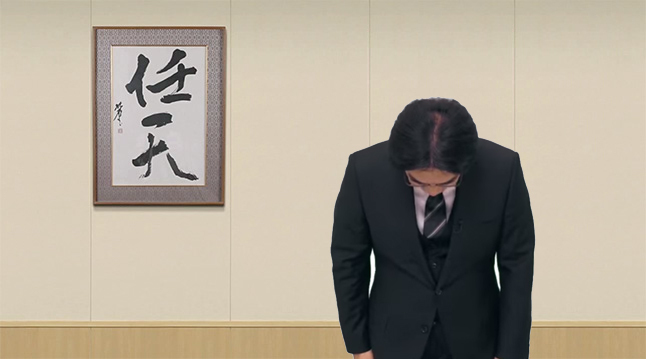
I want to return to Kinda Funny's interview of Spencer, wherein he accepted responsibility for Redfall's state and signaled that he did not see a path for Xbox to match the PS5's sales lead. Something must be said about him coming out and accepting responsibility for a mishap. When I indicated as such on various other channels, many people were apt to point out that Iwata did so when Nintendo's fortunes took a downward turn. Now consider this, by the time Iwata took up the head role in Nintendo, Nintendo had its skin in the video game industry for about the same amount of time Microsoft has been making and publishing console video games in totality. That's an advantage few have mentioned when raising concerns about Spencer's tenure leading Xbox, but one we need to be mindful of before calling for his ousting. Sega, Nintendo, and Sony have all committed more prominent follies that have lost their respective console brands even more money and reputation than the Xbox One. The Xbox One was Microsoft's de Havilland Comet. It was riddled with mistakes, but mistakes that virtually any company that has entered the console manufacturing market has made. Sure, Nintendo and Sony have pivoted within a single console generation after stumbling, but that's after both had decades of experience managing console hardware for nigh thirty years. Expecting a single person or team to un-fuck a thoroughly screwed situation is not just an unrealistic expectation; it also masks how Microsoft's failures have been echoed and repeated by its peers.
There's no way for me to put this without sounding like a monster; the studio dysfunction many have cited as a possible weakness of Spencer's management isn't endemic to Microsoft. Going dark on a hotly anticipated video game title? How about the Nintendo Defense Force update me about Metroid Prime 4 and Nintendo's haphazard direction for Retro Studios? And if you want a historical example of Nintendo being as meddlesome in the development and leadership of a video game as Microsoft was on Fable Legends, look up the development history of Body Harvest and learn how it might stand as one of the most tortured developments in industry history. Do you think Microsoft is alone in announcing a new internal studio prematurely? Remember when Sony paraded Treyarch veterans associated with the Call of Duty franchise with the announcement of Deviation Games? Remember when Sony announced that Deviation Games laid off 90 staff members this year, and all of those big names have since left the label for "undisclosed reasons?" And you also have Sony subsuming Japan Studio and stripping it of its identity after belting out Astro's Playroom.
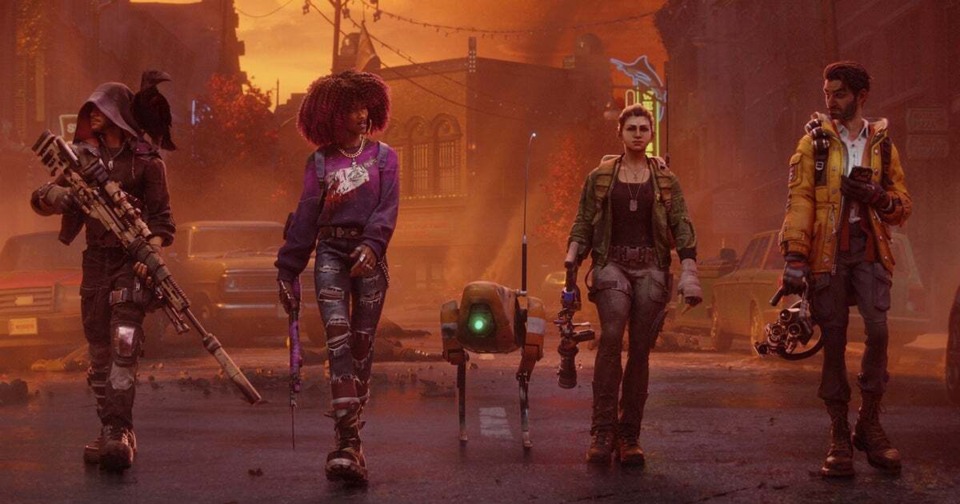
Reading over Jason Schreier's most recent report on what went wrong in Arkane during Redfall shows some weaknesses of Spencer's management style. It sounds like he elected to give the newly acquired studios and their pre-existing management free reign to operate as they did before purchasing them. In a lot of ways, this article isn't surprising. Though, it's not a massive indictment against Spencer or Microsoft. Redfall sounds like an example of a studio operating out of its comfort zone, and with Arkane already three years deep, axing the game was a tough call. Additionally, the mismanagement seems primarily from Arkane's managers rather than Spencer's. You could argue that he should have pulled the trigger, but it's still a brutal decision. His only genuine mistake in my book was presenting the game as a big release when all the signs were there that it was not that. Additionally, Bethesda asked for Spencer's hands-off management style in the first place. Todd Howard has been on record saying he likes Microsoft letting them cook, and that was part of their initial agreement when ZeniMax agreed to its sale to Microsoft. I don't say any of this to apologize for poor management that has gone unchecked or possible toxic work practices. Nevertheless, let's not look at Redfall or other game projects from Microsoft's command center as these self-contained experiences. If Sony was so much better at this, what the FUCK was the deal with that TLOU PC port?
Game Pass Has Always Been A Long-Term Investment & It's A Massive Triumph Regardless Of Its Current Issues
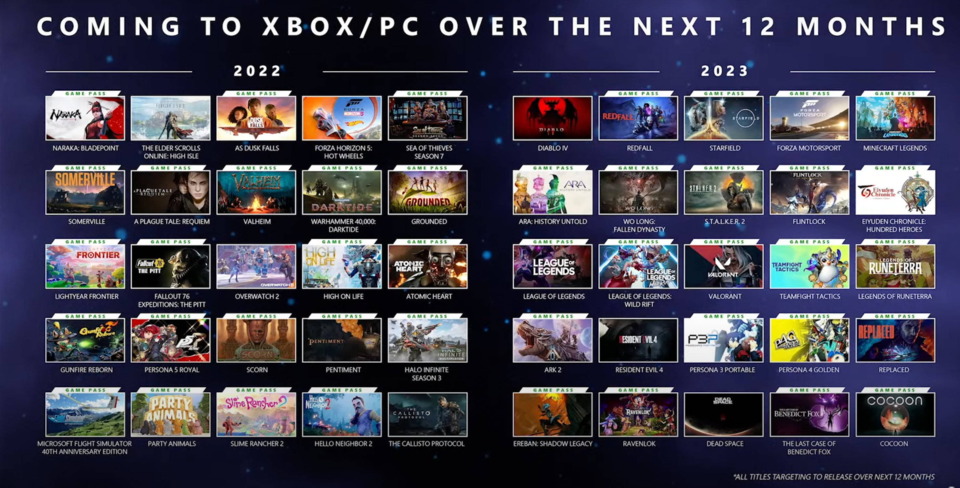
If you press even the most ardent critics of the current state of Microsoft or Spencer to highlight successes, most tend to default to Game Pass. These claims are then followed by a bevy of issues with Game Pass, like the fleeting nature of more prominent games on the service or perceptions of its unreliability. Correspondingly, many people have claimed that Game Pass is a single success story associated with a brand in dire straights and that one W cannot possibly outweigh a long list of Ls. As if fundamentally changing how we consume and play games is a simple accomplishment that should weigh as much as a game launching hot or without promised features. Sure, the communication of what value Game Pass poses needs to improve, and the service is still struggling with some basic UI quibbles that have persisted well beyond their introduction. Still, Game Pass remains one of the best deals in the hobby, and it's not like Spencer unthinkingly followed a template another company pioneered. Laying the groundwork for Game Pass necessitated massive engineering and novel out-of-the-box thinking. There have been subscription gaming services in the past, but none have achieved the ubiquity or general acceptance Game Pass has achieved.
Likewise, Game Pass is not a singular service or product. Xbox Game Pass Ultimate and the goods tied to Xbox Cloud Gaming present entirely different benefits to people who opt into them. With Xbox Cloud Gaming, the team at Microsoft has assuaged previous critics at Microsoft internally that their division fell out of line with the company's growing emphasis on cloud services and its "software as a service" model. Maybe you hate this direction, but when you weigh the need for self-preservation, it's hard not to see the need for it. Cloud gaming is far from something that Microsoft or Phil Spencer invented, but when you look at previous stabs at creating a long-term cloud-based gaming service, efforts like OnLive didn't "stick" the way Xbox Cloud Gaming or Game Pass has. Correspondingly, other competitors like GeForce Now or Amazon's Luna have had far more tumultuous relationships with publishers leaving their respective platforms or services without warning. Let's not forget about GeForce Now changing its licensing agreements and, at one point, losing Bethesda, 2K, and Activision in a few weeks. Game Pass also has injected a much-needed sense of direction into the Xbox brand, and Spencer has consistently executed on funding games that benefit the most from the service, whether it be games big or small. Xbox under Spencer has what feels like an incredibly tangible sense of commitment to a long-term viewpoint on how to change their fortunes, and in the realm of business, that's not something you punish.
People Like Him
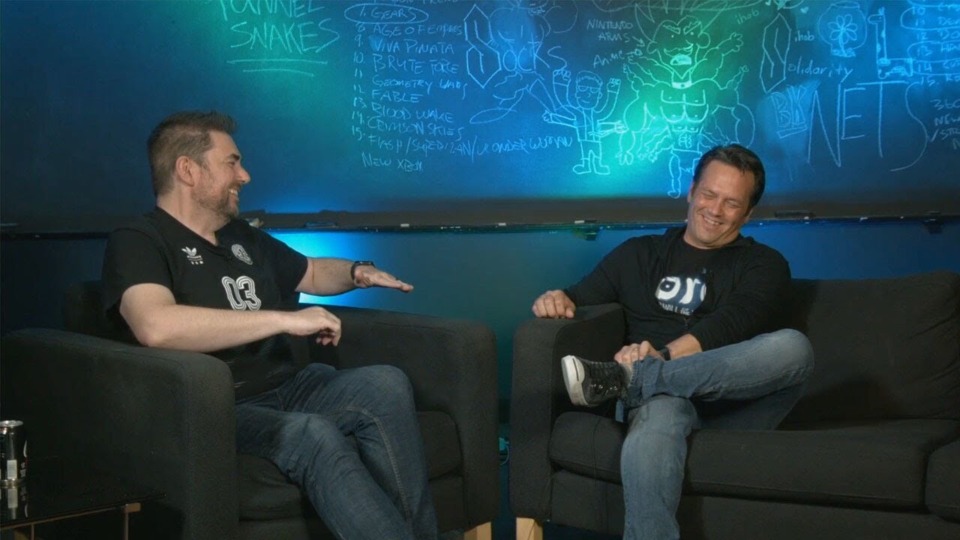
It seems incredibly odd to end this write-up with something so subjective, but pointing out Spencer's amiability seemed the best way to end it. And it is true, while the console wars still fail to die, most people view Spencer in a far kinder and brighter light than most of his competitors. Obviously, Nintendo is the gold standard, but let's remember how many of you would opine about always looking forward to Jeff Gerstamnn interviewing Spencer during E3 and feeling like there was something different about him. Yes, Spencer is still a corporate suit who speaks about wanting to take responsibility for the launch of Redfall with little sign of him following through in any meaningful way. Nonetheless, the man is a storyteller, and unlike Jim Ryan, he has more personality than a wet cardboard box. Even if all Spencer was expected to do was take center stage during conferences and get people excited about things they likely will not touch for at least five to six years, you still benefit from him sticking around. The thing is, Spencer knows his shit and does a lot more than drum up fanboy support. Thanks to his connection to software and game development, he understands the industry, and I don't know how many others tick the additional intangibles boxes he does.
And you know what? Having the humility to say outright that something is your fault and you accept responsibility, especially in an era when we seem to get the most robotic and soulless apologies from video game companies, is refreshing. Spencer's subsequent interviews about Redfall show he understands the game's issues are more significant than simply polish. What are the actual consequences of taking responsibility? I hope it translates to permitting Arkane to cook and providing the people who worked on Redfall the opportunity to share what they think could have been done better and him acting upon that input. Contrast Spencer with Jim Ryan, who often issues public statements that make perfect business sense but get your blood boiling. The main contrast is that the games company Ryan is in charge of has been doing exceptionally well. And that's just that. Even if we like Spencer because he knows how to talk like a human being, the point still stands: when is it time to reassess his tenure?
